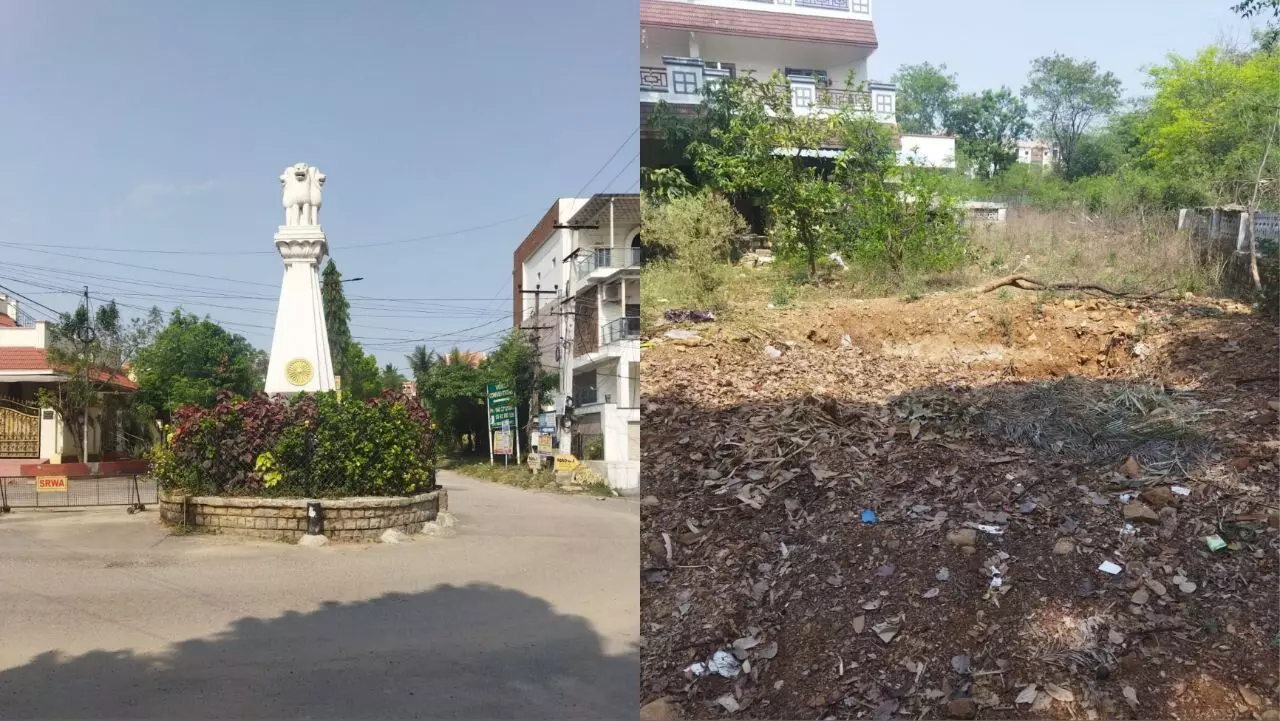Saket colony’s effort to turn dry leaves into compost gets GHMC recognition
The colony started the practice of converting dry leaves into compost in September 2022
By Anoushka Caroline Williams
Hyderabad: On 27 March, the Saket Residential Association received a certificate of appreciation from the Greater Hyderabad Municipal Corporation (GHMC) for their noteworthy achievement in collecting and using dry leaves to make compost at Saket Colony.
Saket is a residential colony located in Secunderabad. It has around 800 houses and is close to AS Rao Nagar and Kushaiguda.
The colony started the practice of converting dry leaves into compost in September 2022.
Each family collects all kinds of fallen leaves from their backyards and stores them in bags. The bags are then collected and emptied into the compost pit. The colony has hired a rickshaw that goes door to door to collect these bags of dry leaves once every month.
“We came to know that GHMC is encouraging the practice of home compost pits. We discussed the same and approached the general body to allot some funds for this project. Last September, we were allotted Rs. 2 lakhs to begin this project. Soon, we started working on it and dug 10 six ft. pits to store the dry leaves. We then appointed a rickshaw to go around houses every month and pick the dry leaves. The leaves were then brought and put into the pits after which we added cow dung. After two months, we started getting manure,” said G.S. Rao, president of the Saket Welfare Association.
The Swachh Bharat initiative launched by the Government of India provided a much-needed boost in the colony’s effort. Saket colony was recognised by local municipalities and the government for the same. It is an encouragement to other colonies and societies to begin this practice.
Every effort counts in such causes. While Saket residential association has been making sincere attempts at creating sustainability, a marked impact can only be seen when every single citizen participates and enforces a change.
It is the responsibility of every person living and breathing on this planet to think twice about their actions. The government can further help by bringing in policy changes to motivate action.
How to make organic manure from dry leaves in your own homes
Dried leaves act as organic manure and are extremely useful to plants. Numerous dried leaves are collected in the garden; instead of burning or tossing them away, they can be used as plant fertiliser. Even today, individuals in rural areas produce manure from dry leaves and use it on plants. There are many trees and plants in the garden, and their leaves frequently break and fall, so gather them all in one spot and let them dry. Compost them once they are dried.
Compost these leaves in a large bucket or a plastic bag. It takes time for this compost to be ready. Fill a bucket or plastic bag halfway with dry leaves, then fill it halfway with water. Maintain the amount of water so that the moisture in the leaves persists. You can also use sour buttermilk for the water. Close the bucket with the lid and set it aside for two months to disintegrate.
Bear in mind that you will need to check the leaves frequently to ensure that they remain hydrated. After two months, let the bucket open for 1 or 2 hours and mash it with your hands until it resembles powder. You can now utilise it as fertiliser.
How to use dry leaves in plants
If you are unable to compost the dried leaves, you can use them directly. Crush the dried leaves with your hands to make a powder, then sprinkle it on the trees and plants. After adding dry leaves, make sure to sprinkle water.